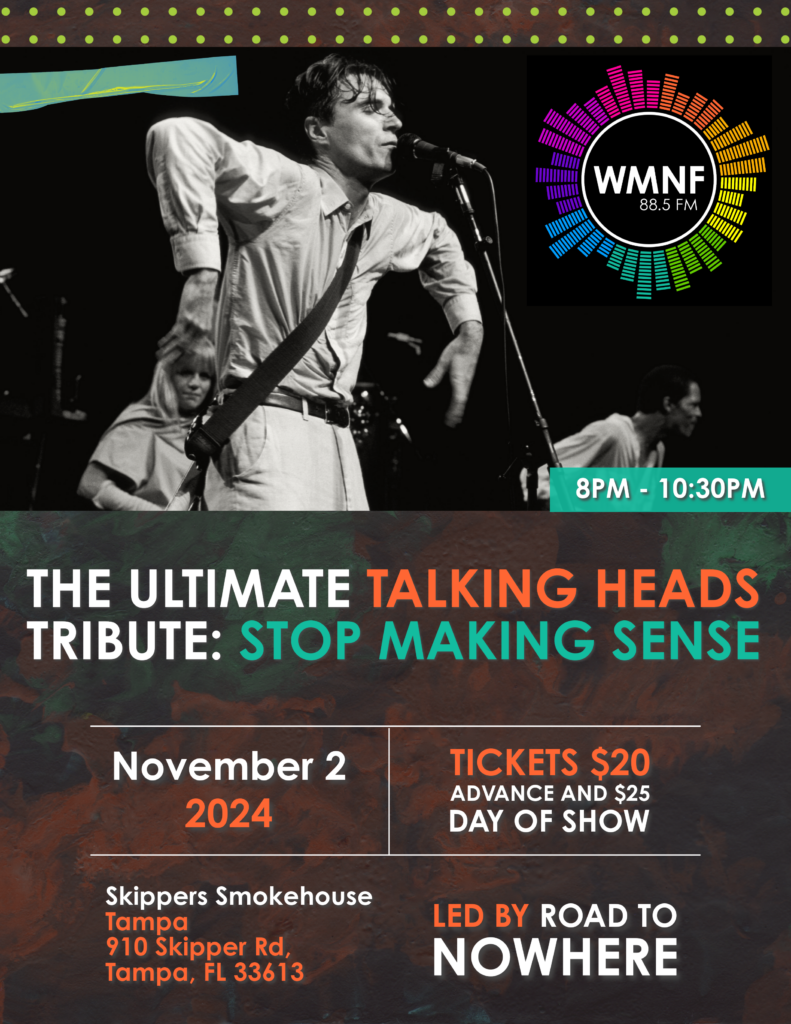
The Talking Heads remain one of the most innovative and influential bands of the late 20th century. With their unique fusion of punk, art rock, and world music, they redefined what a rock band could be. Their 1984 concert film “Stop Making Sense,” directed by Jonathan Demme, is often hailed as one of the greatest live performances captured on film. But the legacy of the Talking Heads extends far beyond this iconic film. In this article, we explore the impact of “Stop Making Sense” and how it serves as a tribute to the band’s groundbreaking artistry.
Released in 1984, “Stop Making Sense” showcases the Talking Heads at their peak, both creatively and performatively. The film is unique in its structure: it begins with lead singer David Byrne stepping onto a bare stage with a boombox, gradually adding band members and instruments as the performance unfolds. This minimalist approach perfectly mirrors the band’s ethos, allowing their eclectic sound and Byrne’s captivating stage presence to shine.
The cinematography of “Stop Making Sense” is as innovative as the music itself. Demme’s direction captures the band’s kinetic energy, using wide shots and close-ups to highlight the musicians’ intricate performances. The film’s lighting and staging contribute to a surreal atmosphere, transforming a simple concert into an otherworldly experience. Songs like “Psycho Killer,” “Once in a Lifetime,” and “Burning Down the House” are elevated by this striking visual presentation, making each performance unforgettable
The Talking Heads’ influence stretches across genres and generations. Their blend of art rock, funk, and world music has inspired countless artists, from alternative rock bands to hip-hop producers. Byrne’s lyrical storytelling and the band’s inventive arrangements set a standard for creative expression in music. The band’s approach to performance art also paved the way for future generations, inspiring artists to think beyond traditional concert formats.
In the wake of the Talking Heads’ enduring legacy, numerous tribute bands have emerged, each aiming to capture the essence of this groundbreaking group. These tributes, often performing “Stop Making Sense” in its entirety, celebrate the band’s innovative spirit while bringing their music to new audiences. From elaborate stage designs to meticulous attention to detail in their performances, these tribute bands honor the original’s creativity and energy.
“Stop Making Sense” is more than just a concert film; it’s a cultural phenomenon that continues to resonate. The film has inspired art installations, dance performances, and even academic studies. Its themes of transformation and connection speak to audiences across various fields. In an era marked by rapid change, the film’s message about finding joy in creativity remains incredibly relevant.
As new generations discover the Talking Heads, reinterpretations of their music are on the rise. Modern artists are sampling their songs and incorporating their style into contemporary music. This blending of old and new not only keeps the spirit of the Talking Heads alive but also allows for fresh interpretations that resonate with today’s audience.
The Talking Heads, with “Stop Making Sense” at the forefront, have left an indelible mark on music and culture. Their innovative approach to performance and music continues to inspire artists and fans alike. Tribute bands and new interpretations serve as a testament to the band’s lasting legacy, ensuring that the magic of the Talking Heads lives on.
In celebrating “Stop Making Sense” and the artistic brilliance of the Talking Heads, we not only pay homage to their past but also embrace the ongoing evolution of their music. As we delve into their discography and witness live tributes, we’re reminded that the essence of the Talking Heads is not just in their songs but in their ability to connect, inspire, and challenge us to keep making sense of the world around us.
Leave a Reply